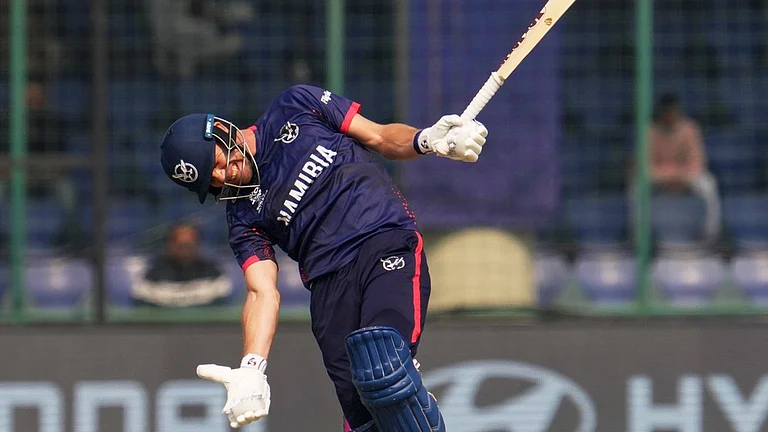To regulate or not to regulate—that’s the dilemma before Union information & broadcasting minister Ambika Soni. While court judgements have advised the ministry to keep away from regulating the media and leave it to an independent panel, fellow parliamentarians have been pushing for a strong content code to rein in news and entertainment channels. The minister, who finds herself trapped in the middle, says she is going to consult an astrologer to find out if her astrological chart is jinxed! On a serious note, she shares her concerns and plans in an interview with Anuradha Raman. Excerpts:
You’re hardly in an enviable position right now...the courts asking your ministry to refrain from regulating sting operations, fellow MPs asking for regulation of content on TV. How are you going to balance the two?
I am answerable to Parliament. The government is answerable to Parliament. At the moment, there are competing priorities, with civil society, large sections of the population and parliamentarians representing large sections of the population putting forth their views on what constitutes proper content on television. I realise the importance of some community standards that need to be put in place. The Constitution provides for freedom of speech and expression, which at times compete with other interests that may seem at variance with freedom of expression. We have to strike a difficult balance. But positions of confrontation can only take us backwards. We have a rich civilisation, going back to 5,000 years, and we should bear that in mind when we talk of content regulation.
.jpg?w=801&auto=format%2Ccompress&fit=max&format=webp&dpr=1.0)
Ten years back, an exercise was undertaken to put together a broadcasting code. Are you going to airbrush it and then make it an Act?
Since 1997, there has been the Prasar Bharati Act, promising autonomy, and the Cable Regulation Act, which all broadcasters promise to adhere to. With over 500 channels now, we are looking at a huge growth of television and the ministry cannot be looking into the content of each of them. The rules of programming are there for all to follow, elaborated as they are in the programme code of the Cable Act of 1995. There is a monitoring service of the government, but I do not believe in the government monitoring the channels. It is not physically possible for the government to monitor all channels.
Your predecessors in the ministry have never shied away from spelling out the content code. In fact, the ministry is still perceived to be the last word on middle-class morality.
There cannot be a diktat from the government on what constitutes appropriate content on television. I firmly believe in the evolution of consensus to address competing interests. I cannot be watching television all day to figure out what each one of them is showing or whether they are violating a code. Nearly 119 notices have been sent by the ministry in the last four years to channels who have transgressed the code. For this, the secretary, information & broadcasting, is the interface between the industry and the government. At the same time, look at the manner in which the channels of communication have evolved, bringing the world closer. And they are constantly evolving. We cannot have a standard code for all times.
So what are the steps being considered by the ministry to arrive at a code acceptable to all?
Ideally, a body similar to the Press Council is required to address the concerns of the industry. In it, the government role should be negligible, save for a representative. The body will not look at content alone; it will address the concerns of the industry. I realise the importance of putting in place a mechanism that is credible and autonomous. But it is heartwarming to note that broadcasting bodies are coming out with their initiatives to examine some of the issues. Clearly, there is a lot of churning taking place in the industry itself and that’s the way out if one has to evolve a consensus.
I am aware that the existence of one or two audience measurement agencies puts extraordinary pressure on channels to air programmes that may not have a universal acceptance. But discussions with all the interested parties have to take place in a structured manner and cannot be simply decided by the government unilaterally.
What about the Prasar Bharati Corporation? The CEO’s high-handedness as well as charges of financial impropriety have sullied its reputation. And the morale at the corporation is at a all-time low.
We are complying with the high court orders that had put in place a mechanism for governance by recommending some checks and balances. But as the CEO had approached the Supreme Court for redressal, I am examining the verbal orders issued by the apex court. The picture of the public service broadcaster is not a happy one. I understand there’s a lot of discontent and I’m looking at the damage done to the institution by these controversies. I am also seeking the law minister’s opinion on the issue.
As a parent, are you concerned about what’s on TV?
As a parent, I am concerned at what is being shown by channels. But I also find that our standards of morality are evolving. Ten years back, there were protests from some political groups following some intimate scenes between two women in Water, the Deepa Mehta film; today, there are movies like Dostana, showing more or less the same content, with little dissent. We are evolving; society is constantly evolving its moral code. We cannot have rigid parameters for all times to come.


























